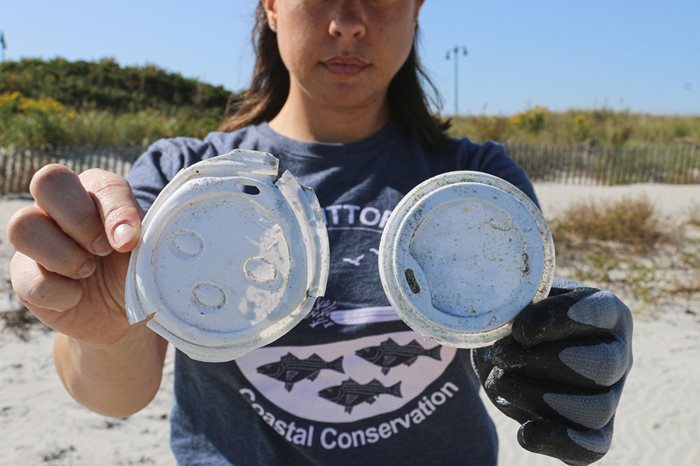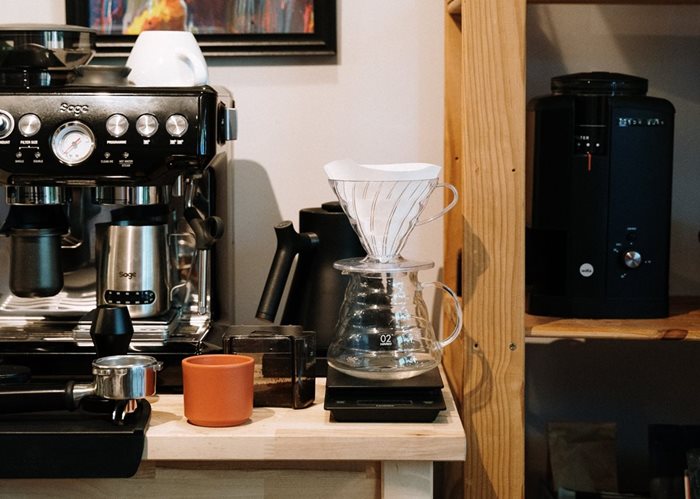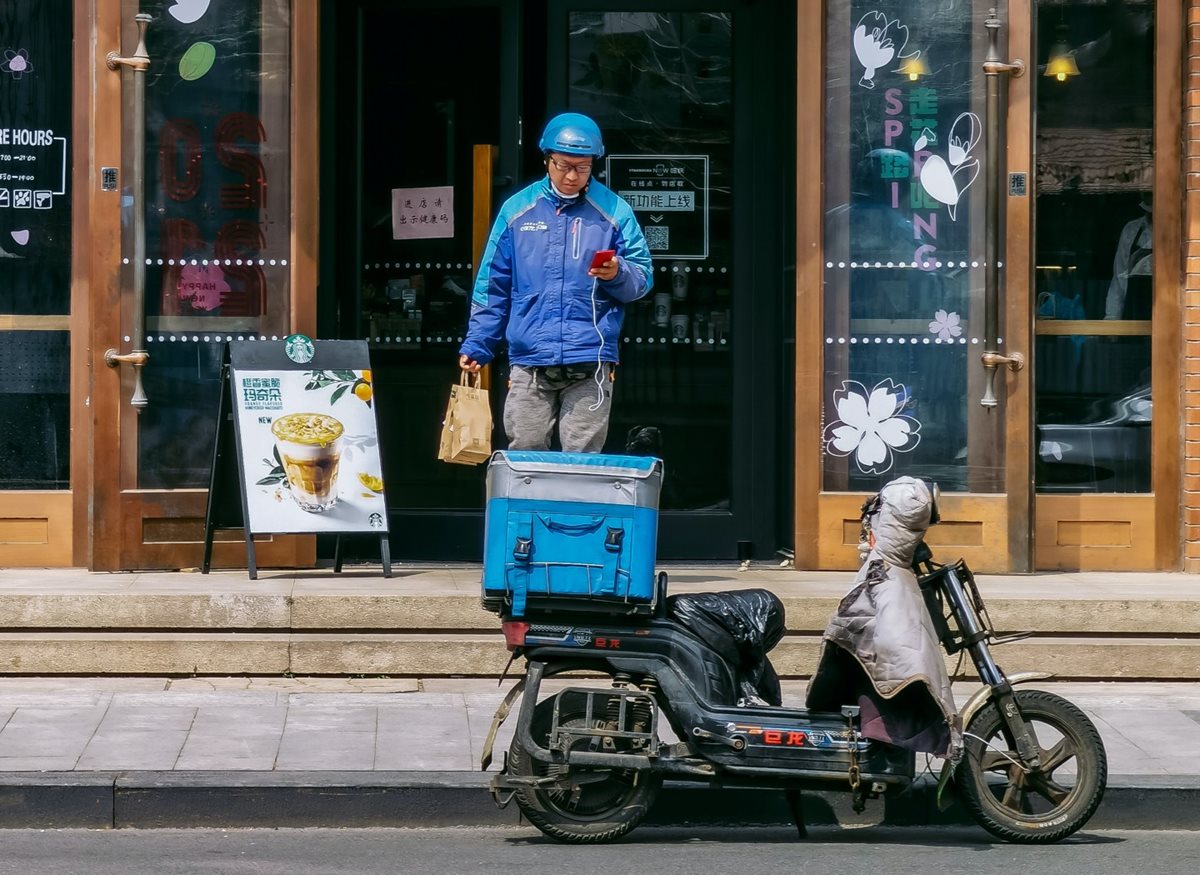The global coffee shop market has undergone dramatic shifts over the last 18 months. While the pandemic has driven profound changes in consumer attitudes, new technology is reshaping the way many operators do business. Based on exclusive World Coffee Portal data, here are five key market dynamics shaping developed coffee shop markets around the world

Over three quarters of Chinese industry leaders surveyed by World Coffee Portal believe there is plenty of growth potential for coffee shops in China
1. The global coffee shop recovery remains uneven
The pandemic has caused widespread yet uneven disruption to the global coffee shop industry, with infection rates peaking asymmetrically and national strategies to containing Covid-19 differing greatly.
Many East Asian markets, particularly China, suffered the earliest Covid-19 outbreaks, but recovered more quickly after rapidly introduced travel and trade restrictions kept infections low.
Despite experiencing significant trade disruption in early 2020, World Coffee Portal data shows China’s branded coffee shop market still
grew 2.9% to exceed 21,400 outlets. Reflecting the optimistic industry mood, over three-quarters of Chinese industry surveyed believe there is plenty of growth potential for coffee shops in their country.
China also remains a significant growth market for international coffee brands, with Starbucks, Costa Coffee, Tim Hortons and Lavazza all ramping up expansion in the country.
Conversely, European and North American markets saw infections peak later and were comparatively slower to lock down, which led to prolonged disruption in 2021.
The UK and US branded coffee shop markets were hit particularly hard, losing a combined $14.3bn in sales in 2020. Highlighting the sustained disruption,
59% of industry leaders in the UK and 50% in the
US reported a sales decline greater than 5% over the last 12 months.
Nevertheless, industry leaders in the highly developed US market remain more optimistic than their counterparts across the Atlantic – 81% surveyed believe there is still plenty of growth potential in their country, compared to 52% in the UK.
Across continental Europe,
60% of industry leaders surveyed reported sales decline of five percent or more over the last year, with the figure standing at 68% in Germany and 66% in France. Despite a challenging year, the European market remains relatively optimistic, with 65% of industry leaders believing there remains plenty of coffee shop growth potential in their country.
Satisfaction in government responses to Covid-19 has also been varied, but broadly critical.
Seventy-nine percent of UK and 73% of US consumers surveyed felt their government could have done more to support hospitality businesses compared with 58% in Canada and 49% of Scandinavian consumers.
When asked whether Covid-19 will have an adverse long-term impact on consumer desire for out-of-home coffee, industry leaders in Canada, where the branded coffee shop market contracted by more than a fifth to C$9.5bn (US$7.5bn) in 2020, were the most pessimistic among national markets surveyed, with 52% in agreement. Scandinavia’s industry leaders were the most optimistic, with 31% in agreement, followed by the UK at 33%, France at 38% and the USA at 40%.
Consumer perception of Covid-19 safety in coffee shops has also been mixed internationally. UK consumers surveyed in late 2020 were most at ease visiting coffee shops, with 72% indicating they felt safe during the pandemic.
In contrast, consumers surveyed in the USA, France, Canada, Scandinavia and Germany indicated they felt considerably less safe to visit coffee shops due to Covid-19. Unsurprisingly, in all markets, those with a higher health risk and aged 55 and over have been the most cautious about visiting coffee shops.
.jpg.aspx?lang=en-GB&width=700&height=466)
Many coffee shops and roasters have reported surging sales at neighbourhood locations in 2021
2. Consumers and workers choose localness, wellness and balance
Restrictions on movement, increased remote working and a renewed desire for community following lockdowns, have all contributed to growing support for neighbourhood coffee shops. Conversely, there have been sharp reductions at traditionally busy city centre and travel hub locations due to reduced commuter and office worker footfall.
Indicative of this trend, global travel hub concession operator SSP Group continues to trade well below pre-pandemic levels. In the UK, coffee and food-to-go focused Pret A Manger is opening more neighbourhood locations outside London to counter lower footfall among its core office worker customers.
While countries with high vaccination rates are seeing many workers return to workplaces, footfall remains lower than pre-pandemic levels and the extent of the recovery remains unclear. In September 2021, Canadian coffee shop giant Tim Hortons reported that low city centre footfall remained the greatest barrier to its recovery from the pandemic.
In Australia, which has endured repeated lockdowns over the last 18 months, major coffee shops and roasters, including
Toby’s Estate,
Mecca Coffee Roasters and
Several Miles Coffee Roasters, all reported surging sales at neighbourhood locations during 2021.
A renewed focus on wellness and mental health has also thrived among consumers, with many operators redeveloping menus to better align with these values. Major coffee chains including Starbucks, Dunkin’ and Costa Coffee have all widened their plant-based menus to cater to growing health and environmental awareness World Coffee Portal data shows almond milk is the preferred plant-based option paired with coffee shop beverages in the US, Germany, Canada and France, and the UK.
In China, where
café culture is rapidly gaining traction in major cities, coffee and health appear inextricably linked – 64% of consumers surveyed indicate paying attention to media reports on the health of coffee beverages is important to them – ahead of 46% in the US and 22% in the UK.
Hospitality businesses around the world are also battling a severe shortage of staff. With hospitality venues shuttered for large parts of 2020 and 2021, many workers have left the industry after being made redundant or placed on state subsidised wage schemes. As major economies around the world reopen for business, there is now a vast shortage of staff.
Subsequently, many operators are addressing poor perceptions of long hours, high pressure and low wages by increasing flexibility, raising pay and promoting career progression.

Environmental sustainability looks set to remain high on the agenda in 2022
3. Environmental sustainability and ethical business take centre stage
Coffee shops, roasters and retailers are
increasingly adopting environmental and ethical business practices amid growing international alarm at the worsening climate crisis and coffee farmer poverty.
Many environmental initiatives were paused during the pandemic, with operators suspending re-usable cup usage and increasing single-use packaging use for hygiene reasons. Fortunately, many operators have resumed and widened environmental initiatives as restrictions have eased.
Industry leaders surveyed by World Coffee Portal broadly agreed coffee shops in their market could be proud of sustainability efforts, with those in China the most agreeable at 60%, and those in Germany the least at 43%.
In January 2020, Starbucks outlined ambitious
sustainability goals, aiming to become ‘resource positive’ and halve its greenhouse gas emissions by 2030 through expanded plant-based menus, reduced single-use packaging and more efficient supply chains.
Italian coffee roaster and café operator, Lavazza, has also
pledged carbon neutrality by 2030 by offsetting indirect emissions from its supply chains. In September 2021, Nestlé-backed boutique coffee chain,
Blue Bottle Coffee, pledged carbon neutrality across its stores and supply chains by 2024.
In October 2021, Tim Hortons' parent company, Restaurant Brands International (RBI)
announced a target to halve emissions from its 27,000 locations, including nearly 5,000 coffee shops, by 2030.
Coffee brands are also seeking to prove ethical credentials by becoming certified B Corporations. The global community of B Corp coffee companies includes Sustainable Harvest Coffee Importers in the US, Colombia’s
Caravela Coffee, Belgium-based
Alpro and
Origin Coffee in the UK.
However, indicating the coffee industry must redouble efforts to effectively communicate ethical coffee credentials, 61% of US consumers surveyed say they find it difficult to understand ethical policies and sourcing practices at coffee shops. The figure was 58% in France, 57% in the UK, 47% in Germany, and 41% across Scandinavia, where artisan coffee culture is widespread.

4. At-home coffee sales continue to boom
Temporary coffee shop closures and trading restrictions during the pandemic led to booming sales of at-home coffee equipment, including grinders, filter brewers, and domestic espresso machines, as consumers sought to emulate the café experience at home.
Indicative of this trend, in July 2021 Italian coffee machine and appliance manufacturer
Delonghi reported astonishing 319.5% half-year revenue growth.
Subsequently, retail packaged coffee companies, including JDE Peets, Keurig Dr Pepper and Lavazza, have enjoyed significant and sustained sales increases. Nestléʼs $7.1bn deal to exclusively distribute Starbucks-branded retail coffee in 2018 appears to be paying off, with the Swiss firm reporting $1.54bn sales across 79 markets in the first half of 2021.
Meanwhile, many brick-and-mortar coffee businesses have sought to capture a greater share of the market by expanding their own branded coffee products.
In May 2020, the UK’s largest coffee chain, Costa Coffee, announced the expansion of its packaged coffee range across Europe. In September 2020, German coffee roaster and café chain Tchibo
entered the US retail market after joining forces with distribution company Rainmaker Food Solution. The following November,
illycaffè sold a 20% stake in its business to US investment firm Rhône Capital to grow its retail coffee and branded café presence globally.
Coffee shop operators should view the
at-home coffee boom as an opportunity rather than unwelcome competition. Increased consumer education will likely open the door to new premium product channels, including single origin specialty coffee, cold brew and different brewing methods.
Despite having invested significantly in home brewing set ups, consumers around the world indicate a strong desire to return to coffee shops and look set to bring sophisticated home coffee rituals in-store. In Germany, the UK, Scandinavia, Canada and France, socialising with family friends was the aspect of coffee shops consumers missed most during the pandemic while a relaxing setting was the most missed among US consumers surveyed.

Many branded coffee chains have introduced hot beverage delivery via third-party apps in the wake of the pandemic
5. Operators diversify and develop digital revenue streams
In a bid to ameliorate disruption to store sales during the pandemic, operators have embraced technology to develop new sales channels and propositions. Many branded coffee chains have introduced mobile app ordering and hot beverage delivery via third-party apps, such as Deliveroo, DoorDash and Uber Eats, to diversify sales channels.
US coffee giants Starbucks and Dunkin’, and Canada-based Tim Hortons sought to offset sharp falls in store footfall by introducing digitally-enabled pick-up and delivery services, with Starbucks introducing a dedicated ‘Pick Up’ store format in 2020. In South Korea, branded café market leader, Ediya Coffee reported delivery sales leaped 612% in October 2020 as Covid-19 shifted café trade online.
Highlighting the potential of this lucrative – yet difficult to successfully implement – revenue stream, 45% of US consumers surveyed would be open to the option of coffee delivery. In Germany the figure stands at 32%, rising to 34% in France. UK consumers appear more reluctant, with just 26% receptive to beverage delivery.
In China, beverage delivery is already widespread having been popularised by e-commerce giant, Luckin Coffee. Eighty six percent of Chinese consumers surveyed in 2020 indicated they have previously ordered takeaway coffee for delivery, with more than half doing so 2-3 times a week.
In all markets surveyed, under-35s were the age group most likely to embrace beverage delivery, with the 65s and over less open to the format.
With its benefits across social distancing and convenience, drive-thru is also gaining traction in key coffee shop markets. In the UK, the proportion of consumers indicating they’d be willing to use drive-thru rose from 48% in 2019 to 56% in 2020. In Germany, the proportion has risen from 32% to 50%, and from 48% to 63% in the US, where drive-thru accounted for 37% of all branded café outlets in 2020.
Coffee shop subscriptions have also been deployed by a handful of brands to encourage in-store visits. UK coffee chains Pret A Manger, Leon, and Soho Coffee Co. have all introduced digitally-enabled beverage subscription services, with JAB Holdings-controlled Panera Bread launching a monthly coffee subscription in March 2020.
Further highlighting the growing importance of e-commerce in the coffee industry,
Panera Bread, which operates more than 2,100 bakery cafés in the US, revealed the proportion of customers opting for takeaway or delivery had risen from 40% pre-pandemic to 85%, with delivery growth at 150%. Nearly half of the company’s sales, around $2bn, now come from e-commerce channels